29 Lessons I've Learned from Life & the Mountains Since Turning 29 Years Old
I thought it might be fun to write one of these type of posts, 29 lessons I’ve learned since turning 29 years old. I’ve seen them before from other bloggers, maybe at different age milestones, but turning 29 feels like a big milestone for some reason. This is my final year around the sun in my 20’s, and soon I’ll enter my 30’s. I’ll cross that elusive threshold that in my past, felt so far away. I’ll no longer be a “twenty-something”, and that has sort of terrified me in the past, but right now, I almost feel excited for it.
My early twenties were a very weird time, but I can see the progression of really finding myself and becoming the person I was truly meant to be.
I started college at a big school, where I knew no-one.
I got married (young).
Then I got divorced (young).
I met one of my very best friends in college.
I graduated college.
I moved to California.
I started a full time job.
I fell into an unsatisfying routine with life (Too much TV, drinking, and working).
Then someone took me under their wing, & took me on my first backpacking trip.
I went on my first solo trip to Thailand to go rock climbing.
I joined a club that taught me more about climbing, mountaineering, and getting past my fears that had previously been holding me back.
I met Michael, we grew our love of climbing and the outdoors together, he introduced me to mountain biking and took me on some of my first alpine climbs. We traveled all around the world: Bouldering in Virgin Gorda, Rock Climbing in South Africa, Traveling the North Island of New Zealand, Taking Sailing Lessons in Mexico.
Then, last year, at age 28, I decided to grow my outdoor blog into a business, talking about what I love the most.
Now at 29, I have an online business that I love and that I’m excited to grow. I’ve connected with people I never thought was possible, and I’m beyond excited where this journey is going to take me. I’ve got really big plans for my 29th year, and I’m excited to share them with you guys as the time becomes more appropriate, but until then, I’d like to share some of the key things I’ve learned from my life (my failures and successes) and the mountains since turning 29 that have shaped me into the woman I am today.
So here we go :)
1. Live a Life Driven Strongly by Curiosity.
I first came across this concept from a book called Big Magic by Elizabeth Gilbert, and it’s probably one of the best things I’ve learned in my 20’s. It’s so easy to operate your life from a place of, “safe” or “known” or even to operate it from a place of “fear”, but if instead you look at your life as a platform for curiosity, your world will open up.
I was invited on my first backpacking trip in 2013, and I could have easily operated from a place of, “I’ve never done that before, or I’m scared. I’ll be too slow or won’t make it,” but instead I decided to be curious. What if I DO make it the top of Half Dome? What if I end up loving this? I wonder what that will be like?
Again in 2014, my coworker invited me to join a climbing club in Utah with him that year. Everything in my body was telling me how unqualified I was to join that group of strong mountaineers and climbers, but I’m happy I pushed those doubts to the side and instead took a leap of faith and said yes. That decision changed my life.
So if you take anything away from this list it’s this: I encourage you to be infinitely curious. Next time an idea pops into your head that really excites you, or an opportunity arises that terrifies you but you are also stoked about… why not just give it a shot? This leads me to another lesson I’d like too talk about…
2. Start looking at Failure as your greatest asset instead of your biggest fear.
This is something I’m continually having to re-learn and re-emphasize to myself, but failure is our friend. Failure is our greatest teacher. Failure isn’t bad. We shouldn’t be afraid to fail… being afraid to fail will only keep us from succeeding. Most of the things I’ve learned and that have shaped me into a better person are from my biggest failures. Failure is essential to growth my friends, embrace it, because on our way through failure we will find ourselves making progress towards our goals.
3. Surround yourself with thought leaders, successful people, & with people who are smarter and better than you.
Another key aspect to growth is surrounding yourself with people who are smarter than you or better than you at your goals. You will learn so much from these people, and your growth will come quicker because you are accepting that you want to learn and you want to learn from those who are kicking ass at what you want to kick ass at. This can come in all forms, find a good mentor, a group, or even a book or blog. The point is, we don’t know it all, and as soon as we are open to learning more, we have huge opportunities to grow.
4. Surround yourself with people who lift others up, not bring them down.
People who talk badly about others, who gossip unnecessarily, who never seem to have anything good to say… well, it’s best to avoid them. If you are constantly around debbie-downers and negative-nancys you’ll become one too. There have been times in my life where I’ve been around these kinds of people and found myself saying and thinking things about other people that I wouldn’t normally say or think. It’s not a good place to be in, it’s better to give love and be love to other people. Everyone’s journey is unique and there’s no one right way to live life… so why not love people for who they are?
5. Where you focus your attention, you will get better at.
When I wanted to learn rock climbing, I surrounded myself with anything and everything about rock climbing. I watched all the movies. I went to every event. I showed up at the climbing gym everyday. I read books about climbing anchors, climbing training, eating for climbing, and stacked my bookshelves with climbing guidebooks. This attention to climbing opened up opportunities for me to go on bouldering trips, meet new friends, learn to lead climb, trad climb big tall sandstone towers in Utah… and the rest is history.
In a similar fashion, I’ve recently become obsessed with learning how to start my own online business. How can I become a digital nomad, have location independence, earn money while I sleep? I’ve, again, bought countless books, enrolled in online courses, gone to events, listened to podcasts… and guess what… I’m getting better at it. Go figure. Want to get better at something? Then smother yourself in learning about it. Give it all you’ve got.
6. Prioritize Adventure, even if you only have the weekends.
People frequently ask me, “Do you ever work?” or “How do you afford to travel so often”… but here’s the truth. I still work the 9-5, and I only get the weekends and a bit of vacation time to travel right now. But the key thing here, is we literally get outside every weekend! You’ve got to prioritize travel and adventure if you want to do more of it. A “lazy weekend” for me and Michael, is heading up to Bishop, CA for some bouldering and camping in the van over the weekend. Even if you’re tired after a long week at work, prioritize adventure! I find that getting outdoors leaves me feeling refreshed after a long week in the office.
7. Don’t get caught up in the comparison game, you’ll always lose.
This applies to so many things in life, especially with social platforms like Instagram and Facebook. It’s super easy to look at others adventurers, or see some girl with 100k+ followers who only posts photos of her rear-end and a beautiful lake + mountainous background and think, “gee, my life isn’t that beautiful”… but forget about those picture perfect IG photos. Your grueling hike that you had no energy to take photos of on the way up, is way cooler than anyones perfect-hair, perfect-clothing, picture-perfect photo on instagram. They literally don’t compare. Either use these social platform to fuel your curiosity, learning or inspiration, but if it starts to create negative feelings in you or feelings of jealousy and doubt in your own abilities, get off those platforms now. You’ve got bigger things to accomplish in this life.
I do this a lot of times in my business pursuits as well. If I constantly am focusing and comparing myself to others and their journeys, I will derail myself from my path and the goals that I’m ultimately chasing. For me, it’s better to keep my eye on the prize and keep those comparison feelings at bay. They don’t serve me.
GRAB MY [FREE] OUTDOOR BACKPACKER STARTER KIT:
I created the Ultimate Outdoor Backpacker Starter Kit for you (and it's FREE)! This starter kit is filled with 14 pages of my best hiking and backpacking tips to help you learn what it takes to become a safe, confident, and self-sufficient outdoor backpacker!
8. Some friends are only for chapters of your life, and that’s OK.
I’ve had some friendships in my 20’s that have come and gone during different seasons. At first, I thought it was some failure on my part to keep the friendships going, but I’ve learned that not all friends are forever, and some are meant only for chapters of our lives. Instead of feeling bad about this, I feel thankful for the time and memories we had, and keep moving forward.
9. Do more of what you love.
This one’s simple, and maybe even repetitive, but it’s worth repeating. Do more of what you love, and less of what you don’t.
10. Your body can go further than you think. Test it.
Before I started backpacking or mountaineering I used to think that there were certain things “I couldn’t do”. But the greatest lessons I’ve learned from years hiking and climbing in the mountains is that my body can handle WAY more than I ever imagined.
I once spent 26 hours awake mountaineering to the top of Mount Rainier and back to basecamp, 26 freaking hours! How? What? I can’t do that? Except… I did. Our bodies are amazing! We can handle so much more than we think. So now, every time I’m out on a long hike or I’m feeling a bit tired and I start to hear my mind tell me things like, “Let’s stop, I’m tired.. I don’t want to keep going… I can’t.” I just smile and think of Mount Rainier. “I’ve done worse”, I say back to myself. Works like a charm.
11. Training works.
When you’re first starting out hiking, climbing or backpacking you’ll make amazing gains in your fitness and skills just by going outside and actually doing the skill you want to get better at. However, there does come a point when you’ll plateau. Maybe you want to get faster or climb harder. The way to push to the next level is focused, planned training. Training is hard. Training takes dedication. Training takes consistency… but training works.
12. When the hiking gets tough, count.
Want to know one of my favorite tools for getting to the top of that damn-mountain when you don’t think you can take one more step? Count.
1 to 50 or 1 to 100… whatever you’d like, just start counting. Push those quitter thoughts out of your brain by resorting to repeated counting. Reward yourself with a 5 second break, and repeat. I’ve made it to the top of many 14ers thanks to my ability to count. It helps bring rhythm to my steps, normalcy to my breathing, and most importantly, a pause to my weak, chattering mind.
13. Exercising Your Mind is as important as exercising your body.
Every year I’ve become a little bit more fascinated with the mind. How can I train it? How can i persuade it? How can I teach it? How are my automatic responses learned from childhood hindering my growth now? How can I leverage my thoughts to create the life and results that I want? I can’t say I’ve mastered this in any form… but I can tell you it’s become a very important theme in my life.
This past summer I went on a hike to summit the 14er, Middle Palisade, but I didn’t end up summiting that peak and instead I didn’t even really attempt it. Looking back at that failed climb, I started to wonder what really went wrong. Was it timing? Was it the weather? Was I feeling weak or unprepared? No. Looking back, I realize it was 100% mental. I talked myself out of that climb before I even got to the base of it. I filled my thoughts with fear and doubt about the climb, if we’d even make it.. or how scared I’d feel on it. But the truth is, I could do that climb. I was fully capable, and in the end.. I let my worry get the best of me. What if instead I had thought about my inevitable success? What if I had envisioned myself at the top, feeling strong, confident? Well, I’d have a different story to share here then wouldn’t I?
14. When we worry and have fear, we aren’t living in the present moment.
The story above is a great introduction to this point, because it was precisely what I didn’t do on my climb of Middle Palisade. I didn’t live in the present, I was thinking only about my potential failure… and thus, I failed.
I’ve had trouble with this concept in the past with lead-climbing grades that are harder for me. I’ll get on the climb, and instead of focusing on the climbing, my breathing and the movement… I’ll start thinking about the fall and how scary that might feel. I start panicking. I start sweating. I freeze. I get shaky legs. My arms pump out. I crawl ashamed back to my last bolt, and ask to be lowered.
Bouldering has helped me gain some mental strength with climbing, and practice the art of living and climbing in the present, but I still have a lot of work to do here.
15. Eat a predominantly plant-based diet.
I spent about a year in my twenties really learning about what kinds of food to feed my body and how to fuel it properly. I became obsessed with it. Like I mentioned in another point above, I began surrounding myself with knowledge on the topic. I read books, watched movies, listened to podcasts, read articles, bought cookbooks…. and eventually I even became vegan for a while and ate an entirely plant-based diet.
Today I’m not a vegan, Michael and I started eating eggs and fish again, but I still fundamentally feel like a predominantly plant-based diet is the way to go. Cut the dairy, cut the sugar, eat mostly veggies and sometimes meat. I do also feel like everybody is a bit different in the way their bodies handle food, so ultimately I think its up too you and how your body feels.
16. Life is the obstacles.
There is this quote that I love that says, “I used to resent obstacles along the path, thinking, 'If only that hadn't happened life would be so good.' Then I suddenly realized, life IS the obstacles. There is no underlying path.”
Can you imagine the summit of the mountain without the grueling uphill beforehand, or the endless number of switchbacks? It wouldn't be the same... it wouldn't be quite so gratifying. I have this tattoo on my right arm that says, "On life and mountains, it is the same"... I got it back in 2014 when I first started my whole journey exploring the mountains and finding who I am. This quote that I read somewhere really hit me. There is beauty and transformation of self in the struggle. And just like when you are slogging up that trail to the summit, only you will understand your pain fully, you've gotta break down your negative mindsets and keep trudging on... your mind is trained to tell you to stop.. stop all the pain... turn around... give up... but, you know better, you know what lies ahead. As Dori would say, Just Keep Swimming, my friends.
17. Passions, interests and careers can change, and thats OK!
I think it’s really easy to get down on ourselves and think that something is wrong with us if we aren’t happy pursuing the typical American Dream, aka: grow up, go to college, get a good degree, get married, have babies, have a good long career with a good stable company, retire old… then maybe start traveling a bit more. There’s nothing inherently wrong with that dream, but I think it’s not for everyone.
In fact, the older I’ve gotten the more I feel like we have a lot more say about what our futures can look like than we ever thought was possible before. Why should everyone’s lives follow the same path? The older I get, the more I feel like we should give ourselves the freedom to pivot, the freedom to change our minds, try on new things. I don’t think there’s a magic formula to living a good life… despite what others may say.
18. Always look for ways to work smarter, not harder.
If engineering has taught me one important life lesson, it is this: The Pareto Principle (otherwise known as the 80/20 rule), which essentially challenges us to work smarter not harder.
I like to look at my systems, in business, in training, etc and ask myself… what 20% gives me 80% of my results? Here’s an example, maybe I notice that with my backpack weight that 80% of my overall weight comes from only 20% of the items in my bag. So, if I focus on lowering the weight of those 20% items, I’ll have spent my efforts more wisely than trying to lower the weight of everything in the bag. This is just an example of course.
19. saving is important, but keep it simple.
I got really interested in learning about stocks at one point in my twenties. I read a lot of books, expecting that I’d come out of that with tips and tricks for mastering the stock market and potentially become a super-fancy day trader with lot’s of know-how. What I learned from all my studying was that, for me, I could probably get comparable results with less stress by just sticking to a low-fee index fund. So… that’s what I do. I keep it simple.
20. Keep Taking those micro-steps toward your goals.
Sometimes life can feel extremely overwhelming. There’s work. There’s training and exercising. Maybe you have a family. Maybe you love to go out and socialize with friends. And at the end of the day you feel like you’ve made no progress toward your goals.
I’ve learned that even on those days we feel completely overwhelmed with life, that to at least make a small micro-step toward my goal every day, and eventually that will snowball into something beautiful. You want to write a book? Write 500 words a day. You want to get better at photography? Practice in the morning before work. Utilize your fringe hours, and keep making forward progress on your dreams.
GRAB MY ULTIMATE OUTDOOR ADVENTURE STARTER KIT
I created an awesome Outdoor Adventure Starter Kit for you (for FREE). It's filled with 14 pages of hiking, backpacking and rock climbing tips, techniques and inspiration to help you hone your outdoor adventure skills and become the ultimate outdoor badass. You can get immediate access to it below. What are you waiting for?
21. Be OK with the B- Work.
This is a BIG one for me. I have a tendency toward perfectionism, and can spend hours working on a project unnecessarily. This has been particularly important lesson with blogging. I can spend an extra 3 hours perfecting a blog post, a newsletter, or my social media… or I can just be OK that it’s not perfect and get it out there! Done is better than perfect.
22. A good down jacket is your best friend.
A good down jacket has been one of the best outdoor gear investments I’ve ever made. A good down jacket will keep you immensely warm in cold weather and packs small into your pack. It’s worth the investment to get a good one.
23. simple is better.
The older I’m getting the more I find that a simpler life is a better life. Michael and I have slowly been getting rid of a lot of stuff that we own, and we never seem to miss it.
The same goes with the outdoors. You can have a lot of fancy gadgets and gizmos in your backpacking backpack, but then you’ll have a super heavy bag that will be miserable to carry. Less is more.
24. Cook with grapeseed or coconut oil, not olive oil.
This is sort of a silly one, but still important! I learned that different oils can withstand different temperatures and that you really should only be “cooking” with grapeseed or coconut oil (I’m sure there might be a couple other high temperature oils) and not olive oil. I had been cooking with olive oil my whole life till probably about age 27. Go figure. No we usually cook with grapeseed oil.
25. build redundancy into your safety systems.
This is very important to learn when you start rope climbing and setting your own anchors or rappelling off of cliffs. Having redundancy in your safety is essential. For instance, if you are rappelling down a multi-pitch climb with an ATC, don’t just rely on your hand to be your break. What if a rock came loose and hit your helmet and knocked you out. If your hand was your last line of defense, then goodbye nice rock climbing life. Instead though, it’s super easy to throw a prussik next to your break hand that will stop you if something bad happens… or if you need a break!
Similarly, with backpacking, if I’m going on a really long trip into the backcountry I like to bring a bit of redundancy with 2 things, food and water. I’ll pack maybe an extra days worth of food, and I’ll make sure there is at least 1 more water filter in our group. If I’m going solo, I’ll pack a small extra water filter device with me too.
26. It’s ok to say no to things.
Saying yes when I first got started in the outdoors is what opened up my world to lots of different possibilities, so saying YES is really important. However, it is also OK to say NO too. I reached a point where eventually I’d have several different conflicting plans for my weekend and I had to learn to buck up and say no a lot more than I was comfortable with at the time. Eventually I reached a point where I knew my goals meant I needed to do more climbing or more backpacking… or sometimes even to stay home to work on projects for this business. I’m a bit more laser focused now with my goals and so in order to stay on track, I had to get comfortable with saying no.
The same goes for your weekdays. If your goal is to start training for climbing and you’ve got a schedule all laid out, but then your coworker invites you to go to happy hour after work, get comfortable with saying no. You’ve got training to do!
27. You can train yourself to be outgoing.
I used to be very, very shy. In college, I’d “pregame” before the “pre-gaming” so that I’d be more social and willing to talk to people I didn’t know (Sad, I know). But I realized that for us shy people, that being outgoing is just like any other muscle… it can be trained. I started pep-talking myself into speaking to strangers at events, or going out of my way to talk to coworkers I wouldn’t normally talk to, and now people tend to consider me “outgoing”. I still find it weird because inside I still have to have those personal pep-talks to talk with people, but it doesn’t make me as anxious anymore. I’ve realized, most people are pretty cool, and you never know who you will meet that could change your life.
28. take massive action.
This one explains itself in my opinion, but if you have goals, TAKE MASSIVE ACTION to reach them! Stop thinking small, start thinking big. This all goes back to point number 5. After you’ve done all your learning from all the books, podcasts, mentors, etc… make a plan to take some massive action on the things you’ve learned. Start now! You don’t have to know everything to get started, and remember point number 2? Failure is your friend! Start, fail, pick yourself back up, reflect on what you could do better, and keep moving forward toward your dreams!
29. Be unapolgetically you.
And finally… be unapologetically you. People will always have their opinions about you and about how you should be living your life, but it’s YOUR life. It’s great to have family and friends and mentors, but at the end of the day, you’re living your life and you have to live with your choices. Choose wisely, and forgive yourself a little.
If you made it to the bottom here, then congrats! I intended to be a bit more lighthearted with some of my “life-lessons”, but they came out a bit more personal-development points that I’ve picked up along the way… so thanks for sticking in there.
Cheers,
Allison - She Dreams of Alpine
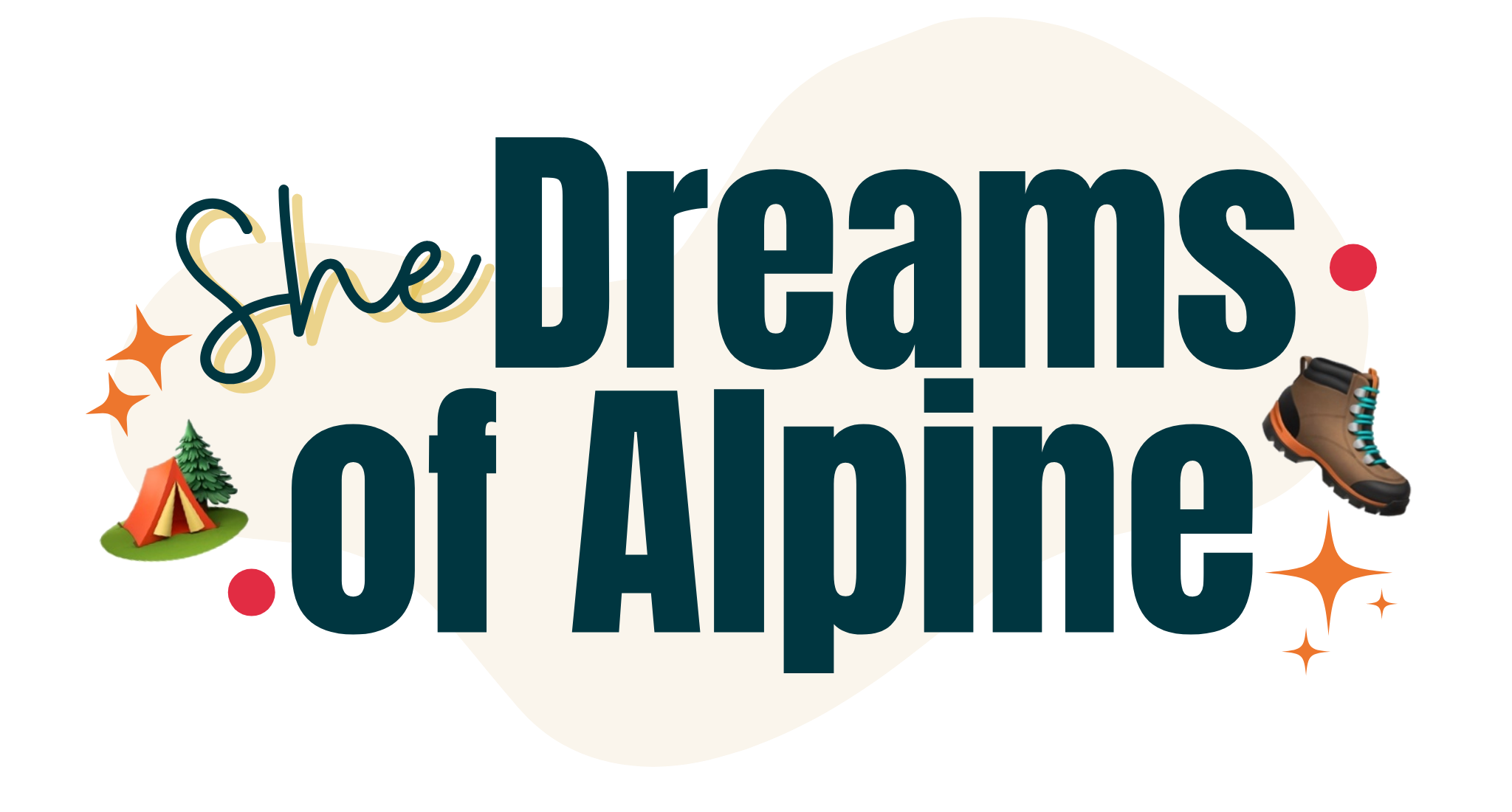


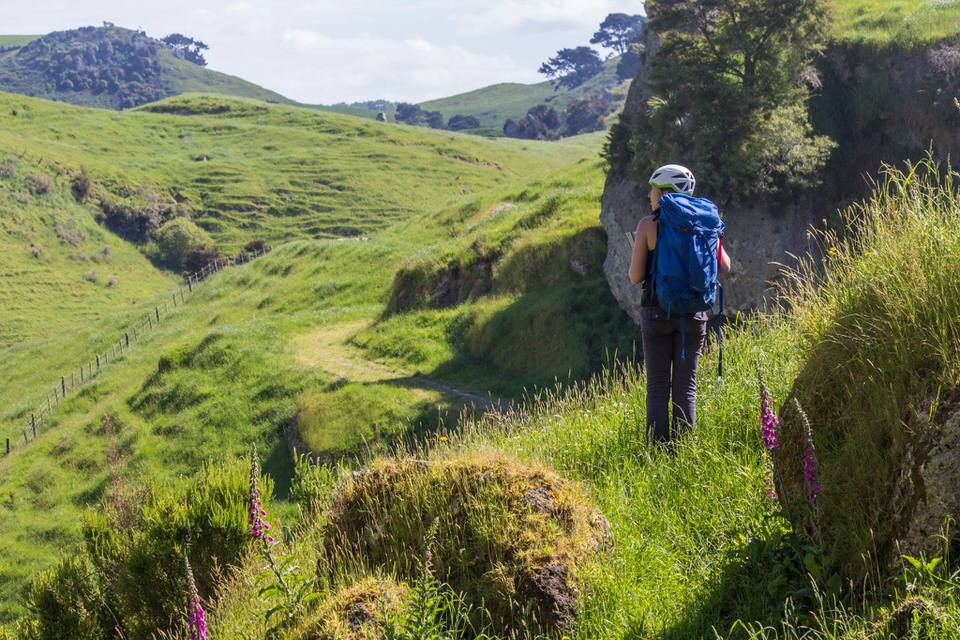





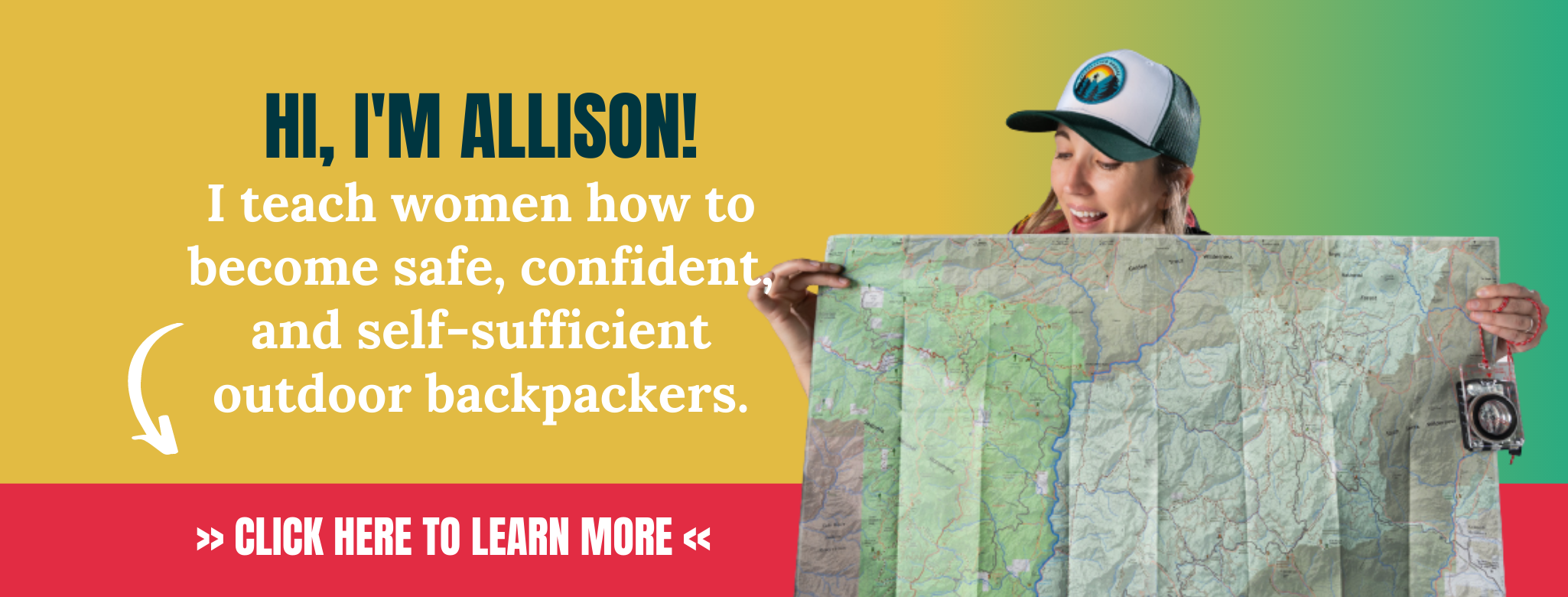


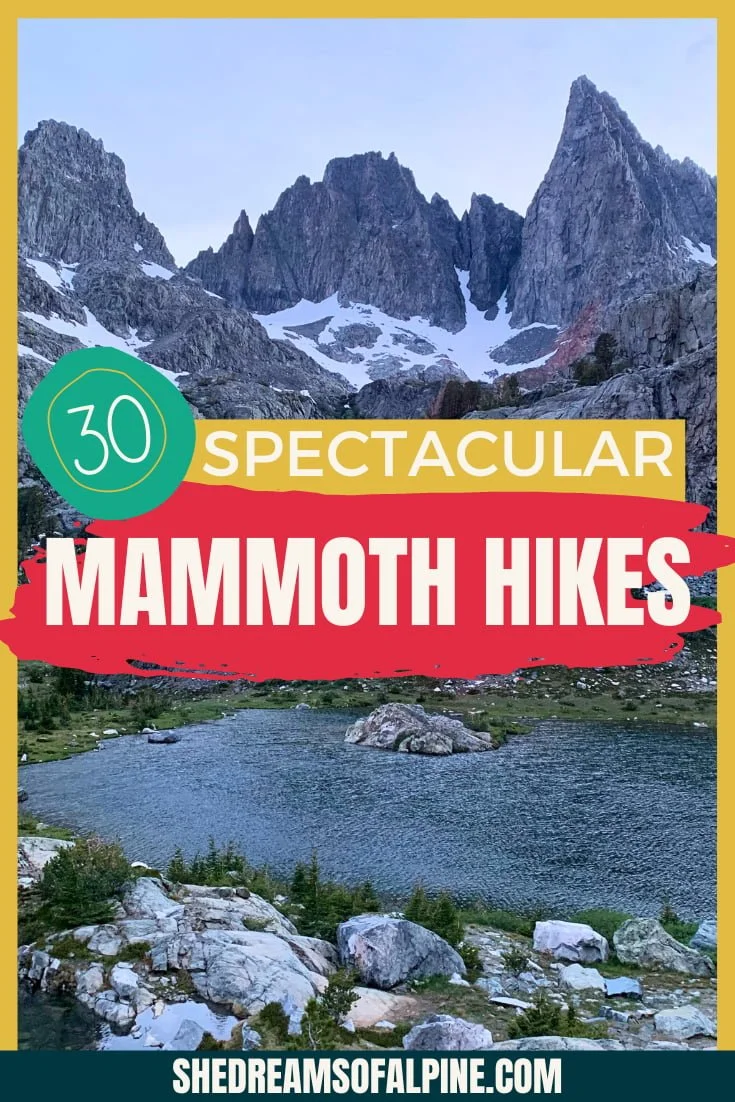
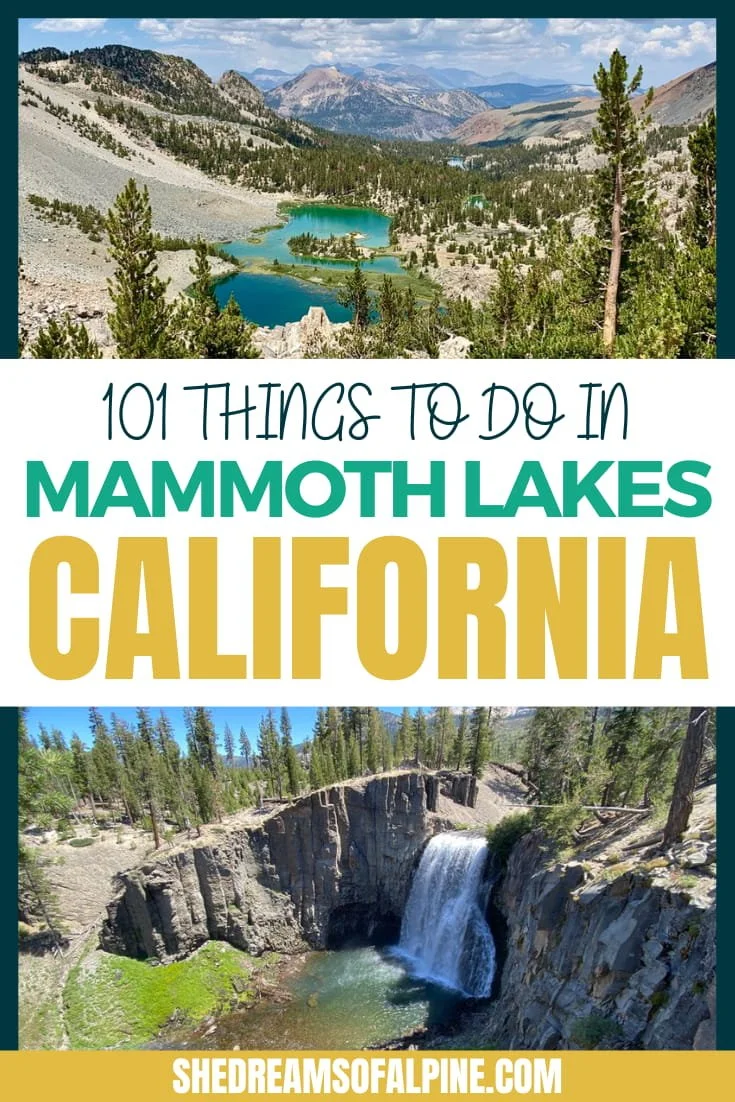



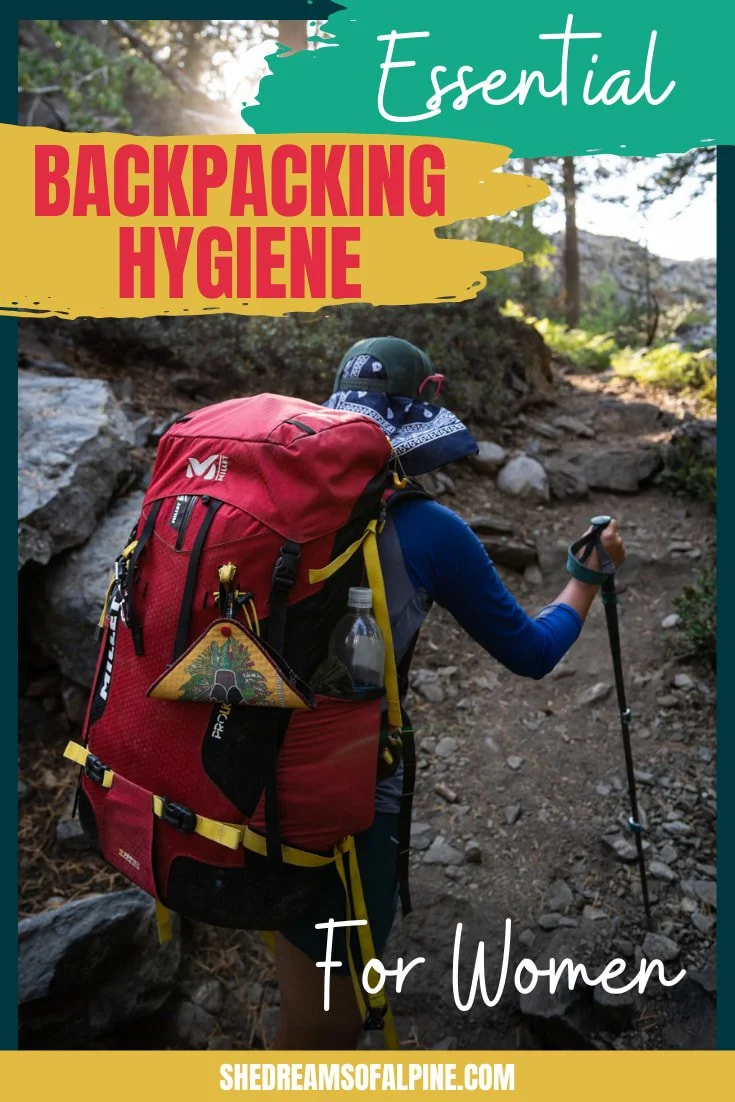

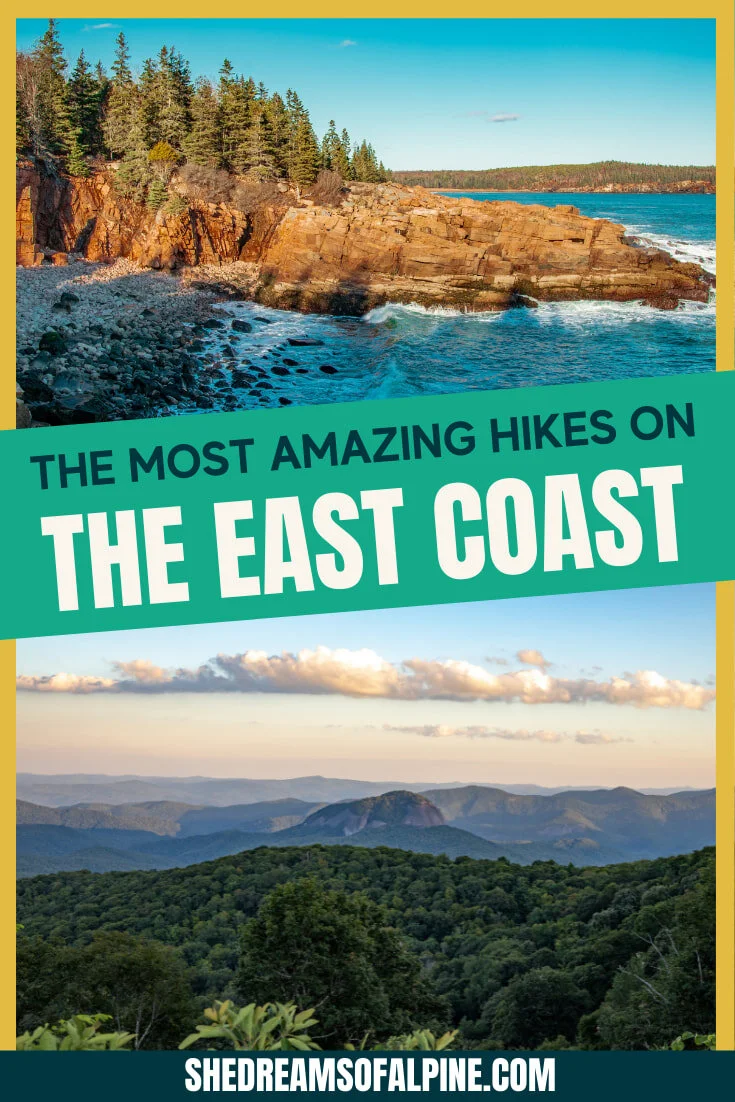
27 of the Absolute Best Hikes in Yosemite National Park to Put on Your Hiking Bucket List | Yosemite National Park is one of the most beautiful national parks in the entire United States, and one of the best ways to explore the park is via one the many amazing hiking trails. In this post, I’ve detailed 27 of Yosemite’s top hiking trails, ranging from difficult to easy, that give you epic views of Yosemite’s grand backcountry and some of Yosemite’s most famous landmarks. You’ll only fall more in love with Yosemite after going on one of these hikes! | shedreamsofalpine.com